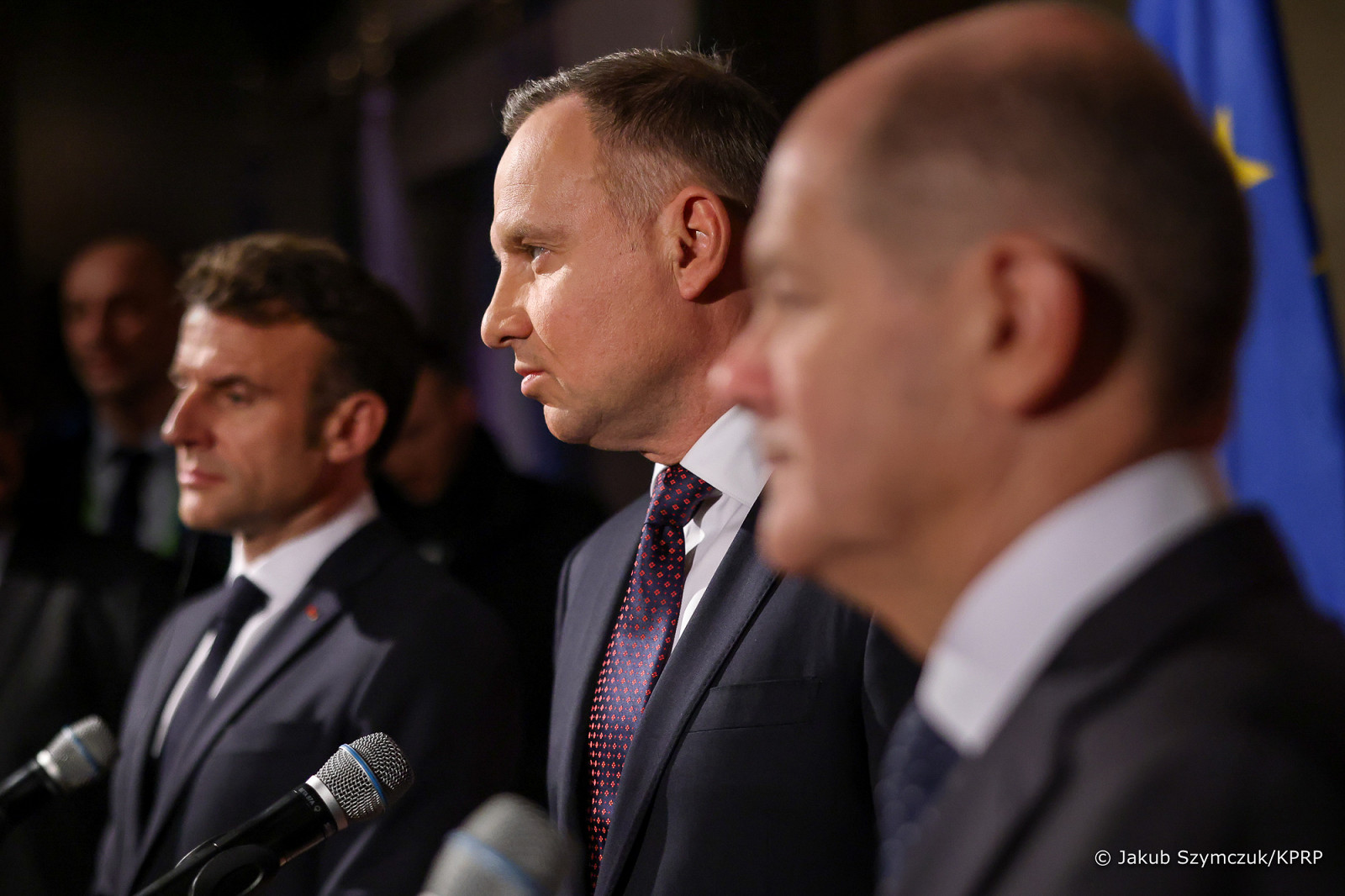The future of the EU energy market has been determined by France, Poland and Germany. The French will be able to use differential contracts to finance nuclear power plants, and the Poles and Germans have received a derogation on coal in the power market – writes Wojciech Jakóbik, editor-in-chief BiznesAlert.pl.
Emmanuel Macron, Andrzej Duda and Olaf Scholz. Picture by Prezydent.pl.
Since 2021 I have been arguing on BiznesAlert.pl that the future of energy in the European Union may depend on the agreement between the three vertices of the Weimar Triangle, an underestimated formula of cooperation between Poland, France and Germany, which may play a significant role in shaping EU policy. This was the case when the Poles and the French, as part of a wider pro-nuclear coalition, won the entry of reactor-based energy into the so-called taxonomy, opening the way to financing as a source for the energy transition.
It was no different in the discussion of Electricity Market Design (EMD), which predetermined the methods of financing megaprojects in the energy sector, among which the contract for difference (CfD) is to dominate. The position of the Council of the European Union on the EMD implies approval of the use of such contracts for the financing of existing and new nuclear projects. This is a nod to France, which wants to renuclearize its sector and subsidize the price of nuclear power. Nuclear power plants, once operational, often produce below market energy prices, and therefore a CfD may cause a situation where the producer will contribute extra to the tariff on the energy bill. But this cuts both sides. In a market with high energy prices, such as Poland, a CfD will consist of a surcharge for the producer on the price of the guaranteed sale of electricity from the reactor, which can be financed from the budget or through a special charge on the bill, like a capacity fee from the capacity market. This means that we can see such a surcharge on the document from the energy supplier after 2033, when the first reactor in Pomerania is to be built.
However, this nod to France opened the way for the Weimar Triangle to compromise on another issue. It will be possible to subsidize coal-fired power generation via the capacity market until 2028, as until then this type of generation will be exempt from the stricter limitations on support. The reform of the energy market assumes that the capacity market will be able to support only sources with emissions below 550g of CO2 per kilowatt hour, and this ceiling excludes coal and most gas sources. The derogation allows them to continue to be financed until 2028, and it is known that Poland and Germany will need a coal reserve in the 2020s. This means that the compromise in the Weimar Triangle will allow Poland to resurrect its „coal corpses” and keep longer the fleet of new coal units that have recently been built, such as Opole or Jaworzno, in anticipation of growing supply from nuclear and renewable energy, which will eliminate the generation gap and the risk of security of supply.
This is how Poland can once again tip the scales in the Weimar Triangle in various European schemes and win compromises important for its own energy sector. It will often turn out that this formula is more effective than the Three Seas or the Visegrad Group, in which the majority of members ultimately vote against Poland on energy and climate policy.









